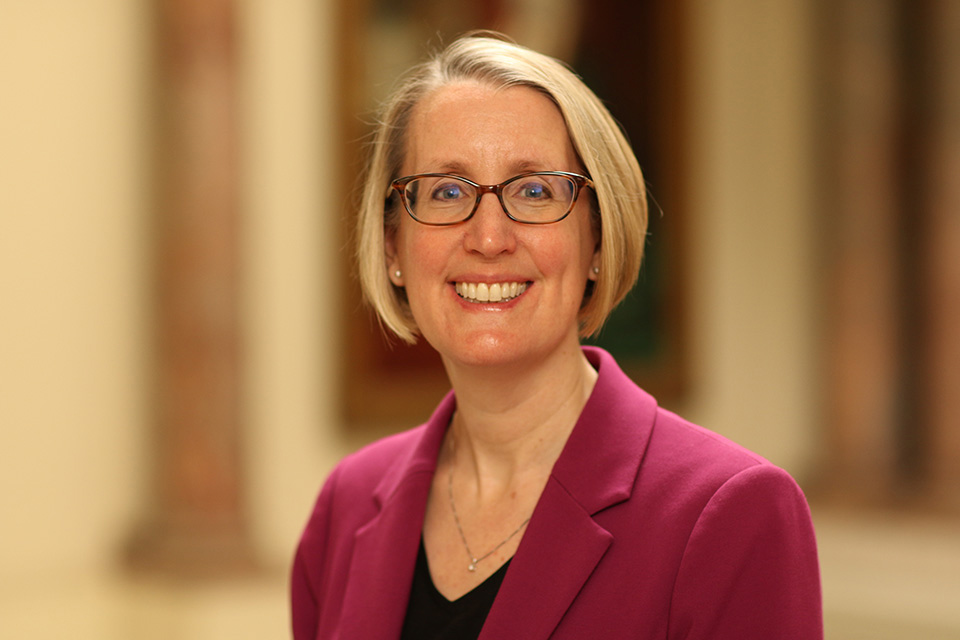Launch of National Social Security Strategy in Bangladesh
DFID Bangladesh Country Representative Sarah Cooke at Launch of National Social Strategy in Dhaka funded UKaid

Honourable Chief Guest,
Shireen Sharmin Chowdhury, Speaker, National Parliament,
Mr. Mostafa Kamal, Minister of Planning, Government of Bangladesh
Mr. Abdul Mannan, State Minister of Planning, Government of Bangladesh
Distinguished Guests
Ladies and Gentlemen,
Good Morning,
It gives me great pleasure to be with you this morning. I would like to start by congratulating the Government of Bangladesh for approving the National Social Security Strategy. I would particularly like to thank the General Economic Division, Planning Ministry, for driving forward the development of the strategy over the past two or three years. Such strategy development processes are seldom straight-forward, involving as they do major economic and political commitments and often ultimately a range of policy and programme trade-offs. To have delivered and approved such a radical and ambitious strategy in this timeframe is no mean feat.
I would like to focus my remarks on 3 broad areas today:
- ‘Leaving no0-one behind’ in the context of recently agreed global goals;
- The need for well targeted, well managed social protection to help “leave no one behind”; and
- The importance of the National Social Security for Bangladesh in implementing the global goals
The global goals, just agreed at the United Nations General Assembly, call on all of us to ensure basic opportunities for all, with the aim of eradicating extreme poverty in a generation. “Leaving no one behind” is thus central to the global goals. Importantly, social protection is identified as a key instrument in ensuring that the poorest are not left behind in the development process. The goals, therefore, challenge us to make social protection available to and impactful for the most marginalised and disadvantaged - a category which includes women and children, the elderly, people with disabilities, other socially excluded groups and those living in hard to reach areas.
I am glad that the Government of Bangladesh invests heavily in social protection. Even better that the support provided is varied and targets a diverse set individuals and groups at risk. But, sadly, evidence indicates that many of the poorest and most vulnerable cannot access, and do not benefit from, these programmes. Moreover, the allowances tend to be quite small relative to the needs of a typical beneficiary, so even where there is access for the right people, the impact on lives and livelihoods is quite modest - really a “net” not so much a ladder or a step.
Most importantly, strictly speaking around 60% of programme beneficiaries do not fulfil the targeting criteria. So although around 80 million people are reached, the majority are not entitled to receive them.
The result of all this is that the impact of formal social protection provision on poverty reduction in Bangladesh is much less than it could otherwise be - as shown by the latest poverty assessment.
And this too is where I see the National Social Security Strategy playing a fundamental role. The Strategy, by providing a framework for sustained implementation of reforms, can help the Government of Bangladesh make its social protection system much more effective and efficient than it has been to date.
This will mean, most importantly finding ways to move to a system with fewer, larger, better managed programmes, with much more effective targeting and, most likely, significantly larger transfers.
Implementing the strategy towards results like these will of course not be easy. If experience to date - and elsewhere - is anything to go by, there will be resistance to change; tough decisions and choices to be made; and signs of substantive progress will be required early by citizens.
We are confident that the GoB can provide the effective leadership to drive forward the required reforms. The UK, with its partners, the Australian Department for Foreign Affairs and Trade, UNDP, WFP, The World Bank and the Manusher Jonno Foundation, is ready to help, through the Strengthening Government Social Protection Systems for the Poor SGSP - Programme.
This is already providing flexible technical assistance and financial aid to a wide range of implementing Line Ministries (e.g. MoWCA, Social Welfare and MoPME), and other Ministries and agencies including MoF, GED (Planning) and the Cabinet Office. The programme can and is providing funding and support for capacity development; priority research; improved information management; institutional analysis; and the development of costed programme reform plans. My hope is that by responding to the demands of the GoB for support in tackling the required reforms, the programme can maximise its usefulness.
I would like to conclude by once again by congratulating the honourable Minister, Ministry of Planning, Member GED and the Cabinet Secretary for your leadership in getting the NSSS approved; and signalling the readiness of the UK and other DPs to assist in implementing it and making social security provision truly impactful for the poor and vulnerable in Bangladesh.
Onnek Dhonnobad.